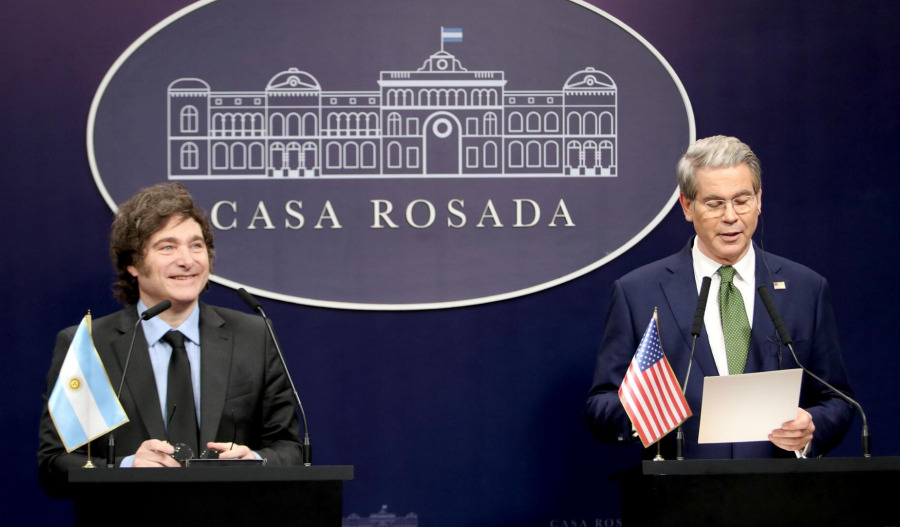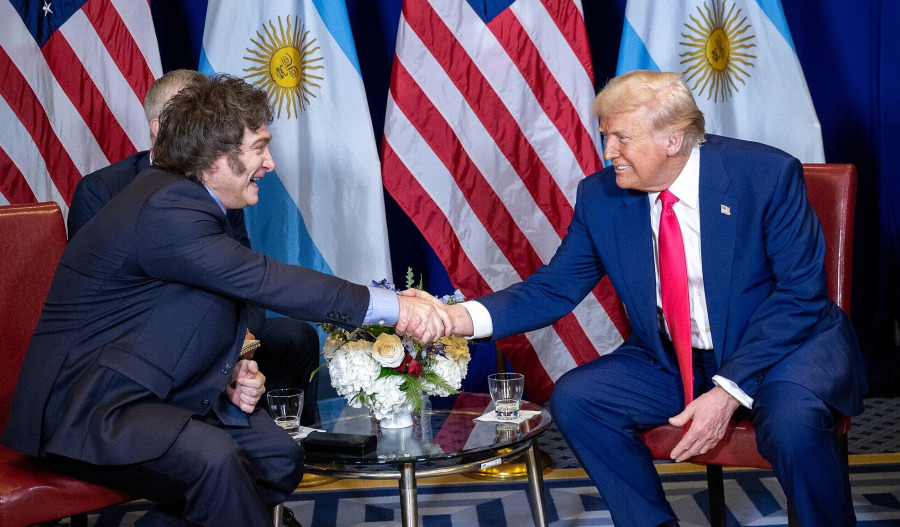As part of a comprehensive strategy to help it respond to forex and capital markets volatility, the Central Bank of the Argentinian Republic (BCRA) has finalised a $20 billion exchange rate stabilisation agreement with the U.S. Treasury Department, just six days before the country’s midterm elections.
While no specific technical details were disclosed, the deal is understood to outline a framework for bilateral currency swap operations between the two countries.
The main objective of the deal, according to analysts, is to reassure investors that Argentina will have the necessary funds to pay hefty foreign currency debt maturities due in the coming months.
“Such operations will allow the BCRA to expand its set of monetary and exchange rate policy instruments, including the liquidity of its international reserves,” The central bank said in a statement.
The announcement, made by the Central Bank in Buenos Aires, comes amid a run against the peso and is the latest in a series of measures by U.S. President Donald Trump’s administration.
The Republican leader has showered Argentina with political and economic support ahead of the October 26 midterms, which will decide whether Milei can force through labour, tax and pension reforms.
The agreement, as stated by the BCRA, is intended to bolster the bank’s toolkit for managing monetary and exchange rate policies. It will also enhance the liquidity of Argentina’s international reserves.
Argentina’s Economy Minister Luis Caputo expects the framework to be finalised before the upcoming October 26 parliamentary elections, where Milei's party aims to increase its representation in Congress.
Milei, known for his aggressive economic reform agenda, including deep spending cuts and reducing government size, has faced several political setbacks recently.
The onetime global poster boy for budget-slashing libertarian politics, Milei’s popularity is falling as he battles rumours of an imminent devaluation of Argentina's currency, the peso, before the vote, fearing that would drive up consumer prices and ruin his attempts to clamp down on inflation.
Having campaigned to solve Argentina's economic woes through fiscal spending cuts and dramatically shrinking the size of government, Milei has been on the receiving end of a string of recent political defeats in the face of his more socially focused opposition.
Adding to the political tension were remarks from U.S. President Donald Trump last week, who vowed the U.S. would not engage further with Argentina if Milei's party lost the midterms—a statement that temporarily unsettled financial markets.
Meantime, while the U.S. Treasury has not yet issued a statement regarding the deal, U.S. Treasury Secretary Scott Bessent said U.S. support would be contingent on sound economic policies, not the election outcome.
It’s understood that the agreement would be supported by Special Drawing Rights (SDRs) from the International Monetary Fund, held within the Treasury's Exchange Stabilisation Fund and converted into U.S. dollars.
Apart from expecting Milei’s administration to continue its fiscal discipline and economic reform efforts - aimed at boosting private-sector growth - Bessent said the U.S. would not impose new conditions on Argentina.
While the Treasury has recently engaged in several peso purchases, details have not been publicly disclosed.
The Argentinian peso closed at a record low, down 1.7% on the day to end at 1,475 per dollar.

Join our community of decision-makers. No card required
Join now

